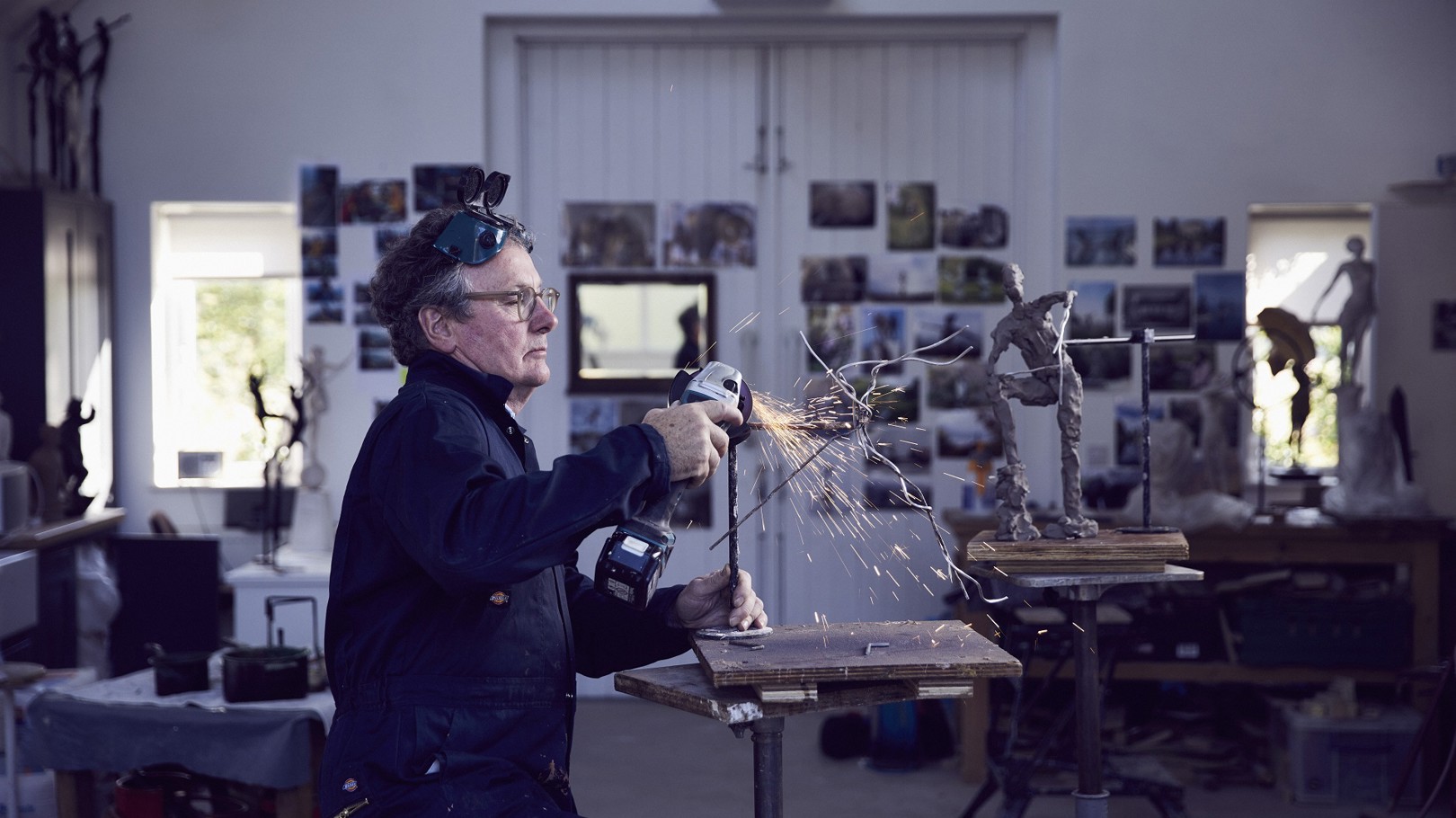A student of eminent octogenarian drawing teacher, Nerina Simi, Williams-Ellis sought out classical training in Florence where his signature style was first established.
His sculptures, worked in clay, from life, are inspired by the romanticism of French sculptors Auguste Rodin and Antoine Bourdelle and are noted for their sense of movement and vitality.
With exhibitions proudly displayed at Perthshire’s Scone Palace, Aberdeen’s Maritime Museum and the IFC Building in Shanghai, Williams-Ellis is perhaps most famously known for his commission of the Normandy Memorial Trust’s D-Day Sculpture.
That monument was unveiled by French President Emmanuel Macron and then-British Prime Minister Theresa May in 2019.

Designed and created at his Oxfordshire home studio, Williams-Ellis’s work on this commission has focused on capturing the motion and characteristics of each player and embodying the spirit of their combined 30 years representing Manchester City.
This initiative is the latest in a series of tributes to key figures forming the Club’s legacy project, first announced in 2019 and directed by Chairman Khaldoon Al Mubarak.
Modern-day legends Vincent Kompany, Sergio Aguero and David Silva were celebrated upon their respective departures from the Club, with each of their sculptures located on the east side of the stadium, in addition to permanent mosaic artworks featured throughout the City Football Academy.
This installation will be located on the west side of the perimeter and will be unveiled on Tuesday morning ahead of a UEFA Champions League meeting with RB Leipzig later that day, where fans will be invited to visit the permanent tribute to an extraordinary era in the Club’s history.
Speaking of his appointment to the project David Williams-Ellis said:
“It is a great honour to create a work of art for Manchester City Football Club celebrating the diverse, talented players, Bell, Lee and Summerbee.
“It’s been an extraordinary last two years, working on this project that celebrates these players from a great era in Manchester City’s football history.
“I hope that the work will give a sense of history and place to the legions of fans and visitors that come to the football ground from around the world and become an enduring part of Manchester’s cultural landscape.”





